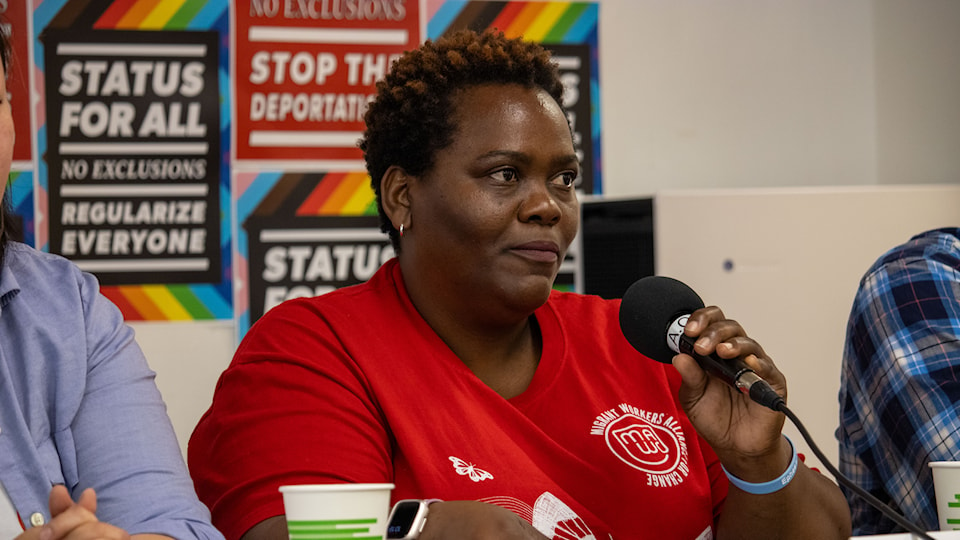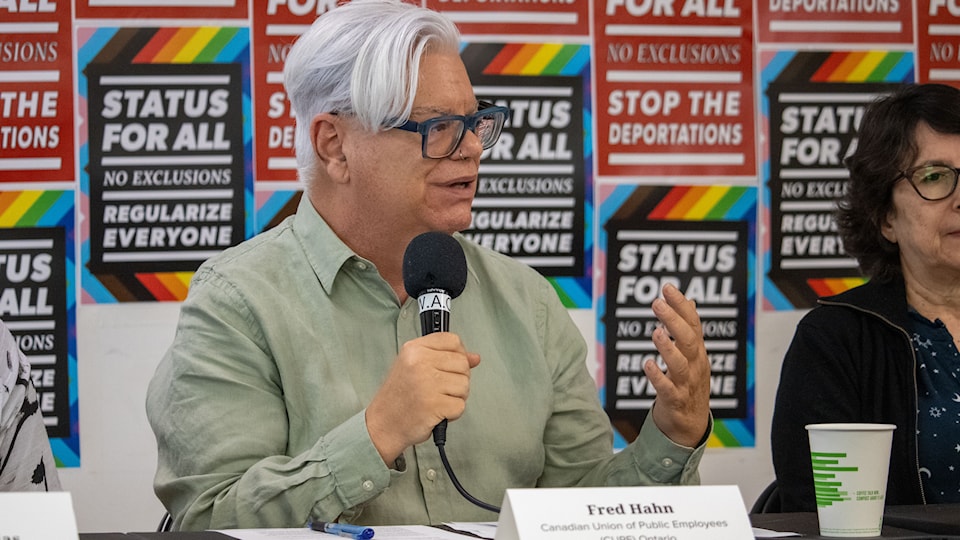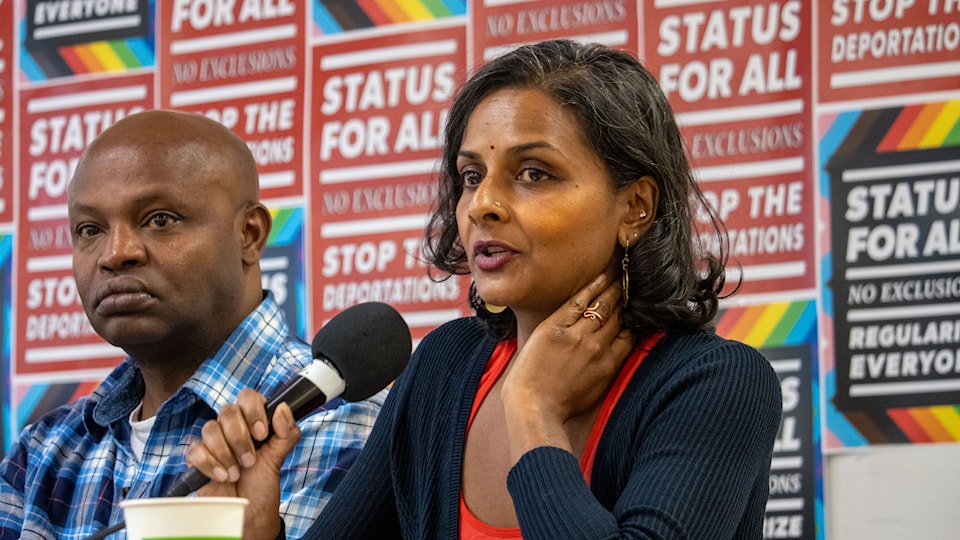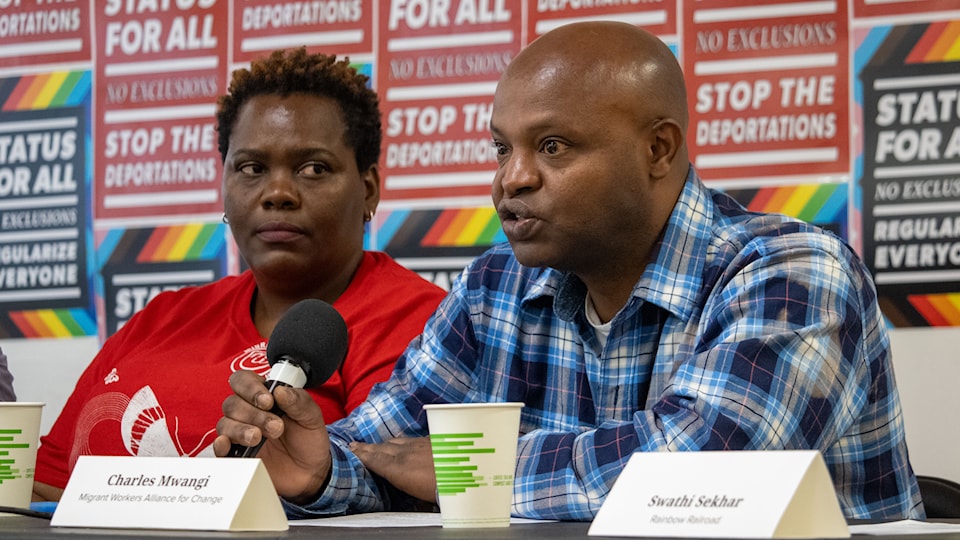Undocumented gay, lesbian and trans people called on Prime Minister Justin Trudeau to keep his December 2021 promise of permanent resident status for undocumented people.
The Migrant Rights Network hosted a media conference on May 17 marking the International Day Against Homophobia, Transphobia and Biphobia. Undocumented persons spoke about the dangers they would face if deported to countries with anti-LGBTQ+ laws, conversion therapy and punishment of same-sex relationships including potential death penalties.

Jane, who withheld her full name out of fear for their safety, is a lesbian undocumented woman from Uganda. The African nation passed a law last year criminalizing homosexuality with punishments including life imprisonment and the death penalty.
She fled Uganda after her husband found out she was a lesbian, was denied refugee status in Canada and is now under threat of deportation.
“Living in Canada without papers is very hard and scary," she said. "I face discrimination, and mistreatment because I'm a lesbian and not having papers makes it worse.
“I can't go back home to my country, Uganda, because I fear for my life,” Jane said.
She spoke of the discrimination and abuse she has faced as an undocumented person in Canada, such as workplace exploitation where she is being paid below minimum wage.
“We deserve to be treated with dignity and respect and be safe," Jane said. "This is a matter of life and death for many of us. Please, Prime Minister, show compassion and fairness and regularize all undocumented persons.”
Charles Mwangi is a bisexual undocumented man from Kenya who works as a personal support and shelter worker and is also facing deportation. He was denied asylum three times after arriving in Canada in 2019.
“Being undocumented, I cannot access most of my rights,” he said.
“For example, there was a time I was at home and the landlord knocked on my door at night. He told me the rent would go up without notice," Mwangi said. "I was paying $650 and he told me now I have to pay $700. This is a problem for me because I can't get a good job and the rent is too much for me to pay.”

Mwangi said he has no protection from illegal rent increases because he is denied rights as an undocumented person.
He said he's no longer afraid to speak out.
“The reason I came out today to speak is I don't have any more fear and I don't want to live the life I'm living," Mwangi said.
"I want to live as a human being," he said. "I want to live a life like any other person. I want to live a life that when I meet you in downtown Toronto, you will not check me in my eyes as an undocumented person.”
Fred Hahn, the first openly gay president of CUPE Ontario, said the labour movement supports regularized status for all. He called on the federal Liberals to keep their 2021 promise to create a pathway to status.
“When we're talking about migrant workers and those who are vulnerable in this way, all of them should have a clear pathway to permanent residency, permanent status, so that they can continue to contribute to our communities in the way they have been," he said. "Our country has been built on immigration and so we must demand that it continues on that path.”

Swathi Sekhar, the director of Protection Initiatives at Rainbow Railroad, said the LGBTQ+ community faces significant dangers around the world. She said 62 counties criminalize same-sex conduct and that crises and conflicts disproportionately impact LGBTQ+ migrants.
“Once they lose status, queer and trans migrants in Canada are exposed to an increased risk of exploitation and abuse,” Sekhar said. “There are LGBTQI+ people that are being deported to places where they may be killed.”
She said regularization is an effective, simple legal mechanism used in other nations that can put LGTBQ+ persons out of danger.
"As we come here together on the International Day Against Homophobia, Biphobia, and Transphobia, I think it's really important to recognize that this kind of regularization could literally be life-saving for many LGBTQI+ migrants who are in this country," Sekhar said.

